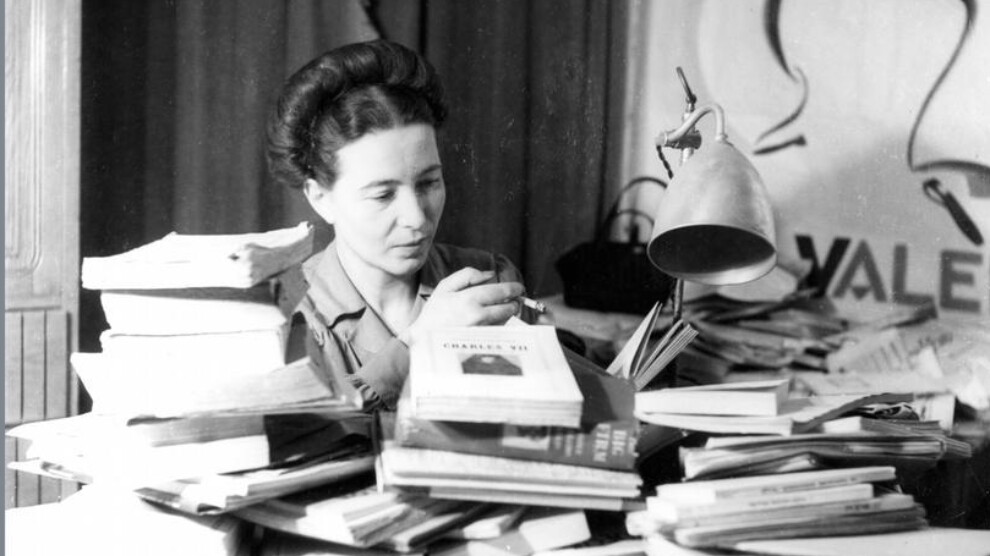Portrait of the day: Simone de Beauvoir
Simone de Beauvoir, well-known for her phrase, “One is not born but becomes a woman”, was one of the women who inspired the second wave of feminism.

Simone de Beauvoir, well-known for her phrase, “One is not born but becomes a woman”, was one of the women who inspired the second wave of feminism. She was a French writer, intellectual, existentialist philosopher, political activist, feminist, and social theorist.
Simone de Beauvoir was born on January 9, 1908. Her father Georges Bertrand de Beauvoir was a lawyer and her mother Françoise Beauvoir was a wealthy banker's daughter and devout Catholic.
After passing baccalaureate exams in mathematics and philosophy in 1925, she studied mathematics at the Institut Catholique de Paris and literature and languages at the Institut Sainte-Marie. She then studied philosophy at the Sorbonne. After passing the agrégation in philosophy, she became the youngest philosophy teacher in France. Simone de Beauvoir and Jean-Paul Sartre were classmates and competitors at the Sorbonne in 1929, studying for the aggregate in philosophy, a prestigious graduate degree. The jury for the agrégation narrowly awarded Jean-Paul Sartre first place instead of Simone de Beauvoir although his marks surpassed Simone de Beauvoir’s.
At the end of World War II, Simone de Beauvoir and Jean-Paul Sartre edited Les Temps Modernes, a political journal that Sartre founded along with Maurice Merleau-Ponty and others. She died on April 14, 1986, in Paris, aged 78. She is buried next to Sartre at the Montparnasse Cemetery in Paris.
Simone de Beauvoir published her first novel “She Came to Stay” in 1943. In 1944, she wrote her first philosophical essay, Pyrrhus et Cinéas, a discussion on existentialist ethics. She published her book “The Second Sex”.
The list of her publications is as follows:
She Came to Stay (1943)
Pyrrhus et Cinéas (1944)
The Blood of Others (1945)
Who Shall Die? (1945)
All Men Are Mortal (1946)
The Ethics of Ambiguity (1947)
"America Day by Day" (1948)
The Second Sex (1949)
The Mandarins (1954)
Must We Burn Sade? (1955)
The Long March (1957)
Memoirs of a Dutiful Daughter (1958)
The Prime of Life (1960)
Force of Circumstance (1963)
A Very Easy Death (1964)
Les Belles Images (1966)
The Woman Destroyed (1967)
The Coming of Age (1970)
All Said and Done (1972)
Old Age (1972)
When Things of the Spirit Come First (1979)
Adieux: A Farewell to Sartre (1981)
Letters to Sartre (1990)
Wartime Diary (1941)
A Transatlantic Love Affair: Letters to Nelson Algren (1998)
